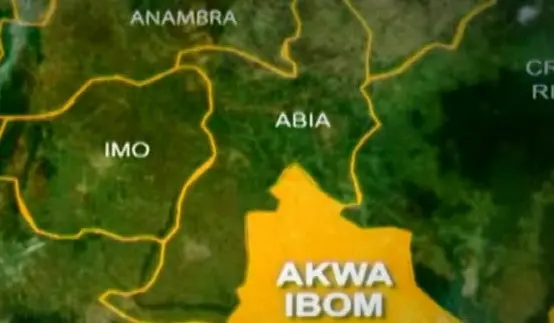
Saturday July 05, 2025
By Idorenyin UMOREN
The Ibibios of Akwa Ibom State origin have opposed the demand for the creation of an Obolo state from Akwa Ibom state, saying they will not concede any part of their land currently occupied by the Obolo people.
This was the position of the Ifim Ibom Ibibio, the highest traditional leadership institution in Akwa Ibom, during the public hearing on the review of the 1999 constitution.
The public hearing on the amendment of the 1999 Constitution for the Southsouth Zone was declared open on Friday at Ikot Ekpene by the Senate President Godswill Akpabio.
According to The SUN, the memorandum was presented by Dr. Samuel Udonsak, the President-General of Ekid People’s Union on behalf of the Ifim Ibom Ibibio. The Ibibios are the largest ethnic group in the state.
Dr Udonsak stated that whereas the Ibibios are not opposed to the creation of new states in the country, the Obolo people in Ibeno and Eastern Obolo who are ‘squatters’ on Ibibio lands do not have any right to carve out any portion to create a state of their own.
He said, “In the current constitutional amendment process/exercise, Ifim Ibom Ibibio notes that Nigerian people have made requests to the National Assembly for the creation of 31 additional (new) States across the six geopolitical zones of the country.
“As shown in the public hearing invitation document recently published by the Senate Committee on the Review of the Constitution, we know and note in particular that there is a request for the creation of Obolo State from the present Akwa Ibom State and Rivers State of South-South Nigeria.
“The Obolo people in Akwa Ibom State seeking a separate State of their own, currently live in Eastern Obolo Local Government Area (LGA), one of the 31 LGAs in the State, together with the Ibibio people (in 16 LGAs), the Annang people (in 8 LGAs), the Oro people (in 5 LGAs), and the Ibeno people (in one LGA).
“As earlier precisely indicated in Subsection 1.1 above, Ifim Ibom Ibibio recognizes and respects the right of the Obolo people currently living in Eastern Obolo LGA of Akwa Ibom State, to seek a geopolitical entity (a State) of their own.
“Ifim Ibom Ibibio, however, firmly holds the position that no part, no inch of Ibibio land, in any of the16 Ibibio LGAs shall be excised or carved out to create Obolo State, or any other State for that matter, which is not formally, legitimately and collectively demanded by Ibibio people, the owners of the ancestral lands they occupy”.
He stated further that, “For the clarity of the matter, it should be noted that the following 16 of the 31 LGAs of Akwa Ibom State, as listed in the FIRST SCHEDULE (SECTION 3) PART 1 of the 1999 Constitution of the Federal Republic of Nigeria, are Ibibio LGAs: Eket, Esit Eket, Etinan, Ibesikpo Asutan, Ibiono Ibom, Ikono, Ikot Abasi, Ini, Itu, MkpatEnin, Nsit Atai, Nsit Ibom, Nsit Ubium, Onna, Uruan and Uyo.
“The ancestral/authentic boundaries of these LGAs are clearly demarcated and delineated in the APPROVED, OFFICIAL, AND GAZETTED (APRIL 27, 2023) MAP OF AKWA IBOM STATE.
“In sum, the position of Ifim Ibom Ibibio and all Ibibio people at large, home and in the diaspora, is that no village, no section, no part, no inch of any of these Ibibio LGAs shall be made part of the proposed Obolo State, or any other State.
“As evident from established historical facts, all the parcels of land currently occupied by the Obolo people in the Eastern Obolo LGA of Akwa Ibom State were leased to their forebears by the Ibibio people on a royalty-paying basis.
“As a people, the Ibibio have been living in harmony with their kith and kin from the Annang, Oro, Ibeno, and Obolo ethnic extractions in Akwa Ibom State.
“Ifim Ibom Ibibio and Ibibio people at large, have no problem with the request of their Obolo brothers and sisters for the creation of Obolo State for their separate identity.
“However, the Ibibio are totally opposed to the annexture of any part, any inch of Ibibio land to the proposed Obolo State. This is our firm conclusion and position on the matter”, Udonsak stated in the memorandum.
